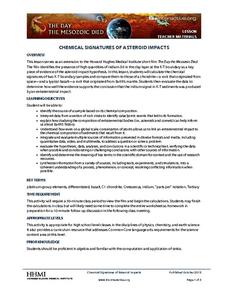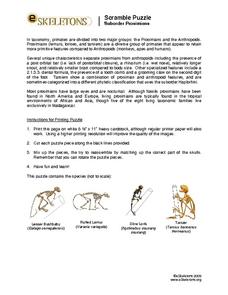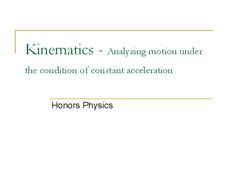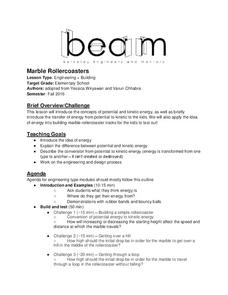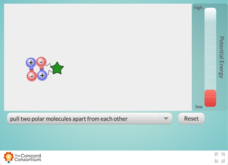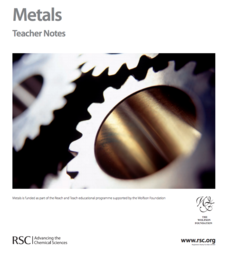Curated OER
Dinosaur Tracks and Critical Thinking
Get your young scientists excited about geology through the study of dinosaur tracks! They will use their power of observation to learn how tracks are made and use critical thinking strategies to suggest a scenario in which they were...
Curated OER
Alka-Seltzer Cannons
The scientific method is emphasized in this engaging and exciting chemistry lesson. Learners get to create Alka-Seltzer cannons out of film cannisters, water, and Alka-Seltzer tablets. Carbon dioxide gas builds up inside the cannister,...
Curated OER
Victory in Europe, 1944-1945
High schoolers examine the overall strategy pursued by the Allies in the final moths of World War II in Europe by examining military documents and consulting an interactive map of the European theater.
Curated OER
Goldilocks and the Three Bears
Students read and discuss the story "Goldilocks and the Three Bears" and design a structure that will withstand a clay bear's force sitting on it. They develop a list of activities that the three bears do that real bears can't do, and in...
Curated OER
Lesson 3: Acceleration and Force
A nine-page physics resource supports your lesson on acceleration. A step-by-step lesson plan walks you through the materials you need, the background information, steps for leading experimentation, and the explanation of the results....
Curated OER
How Are Stars Like People?
A beautifully written lesson plan delves into a beautiful topic: stellar population. Engage aspiring astronomers with activities that examine human populations and then transition onto the stars of the universe. Data and photographs for...
Curated OER
DC Branch Current Analysis
Engage your class in physics with this series of questions. The first question is the most hands-on and asks learners to build their own circuit. The rest of the questions are related to current analysis. Class members solve 7 problems...
Alabama Learning Exchange
Mirror, Mirror on the Wall: Reflections of Light
Why can we see our reflection in a window but not a brick wall? Young physicists learn the Law of Reflection and various light properties that help them answer this and other questions about reflection. Use the PowerPoint to introduce...
Howard Hughes Medical Institute
Chemical Signatures of Asteroid Impacts
What killed the dinosaurs and how do scientists know? Your high schoolers can examine these fascinating questions with a geochemical lens using the engaging 33-minute video, the accompanying data interpretation, and some thoughtful...
Baylor College
Needs of Living Things: Pre-Assessment
Determine your class's prior knowledge about the necessities of life with this pre-assessment for a unit on living things. Learners draw pictures of themselves with all the things they need to live, grow, and survive. These drawings will...
Terminix
The Pollinator
What do bees and children have in common? They both love their sweets. Decorate a flower pot or bucket to look like a brightly colored flower and fill it with wrapped candy and cheese puffs. Have learners reach into grab the candy,...
eSkeletons
Skeleton Scramble Puzzle: Suborder Prosimians
Explore the finer details of primate skulls with these puzzles, incorporating advanced scientific analysis of two suborders- Prosimians and Anthropoidea- and one superfamily- Hominoidea. Learners read about the unique characteristics of...
It's About Time
Photosynthesis, Respiration, and the Carbon Cycle
Provide your class with the opportunity to view our carbon cycle close up. Young scientists research the cycle of oxygen as it completes the tasks of photosynthesis and respiration. They explore the importance of carbon in an ecosystem...
It's About Time
The Nitrogen and Phosphorous Cycles
How do we affect the ecosystem, and what can we do to preserve it? Pupils explore chemicals that promote and inhibit plant growth, then discuss the importance of nitrogen and phosphorus to the survival of organisms and describe how...
Bowels Physics
Kinematics
Lead your class on a speedy journey as you present an effective lesson on kinematics. Individuals review speed, acceleration, and velocity before completing several practice problems to integrate the concepts.
Beyond Benign
Climate Change Chemistry
Assist your class with learning the importance of caring for our environment as they complete this fun-filled lesson on climate change. Individuals perform simulations related to greenhouse gases, atmospheric gases, and the overall...
LABScI
The Separation Lab: Candy Colors
There's no better motivator than candy! An engaging activity has pupils explore methods for separating mixtures. A two-part lab first explores methods of separation based on size and magnetism. The second activity introduces learners to...
University of California
Marble Rollercoasters
Don't let your classes coast through school! Engage them in their learning as they build their own roller coasters to study potential and kinetic energy. Young scholars complete several challenges that require them to consider the...
Nature Works Everywhere
Sharks and Shorelines
Examine predator-prey marine relationships through an interactive lesson design. Learners begin by studying a specific shark species and then analyze real-time shark-tracking data. They also study threats to shark populations and...
Concord Consortium
Comparing Potential Energy of a Bond
Have you reached your breaking point in looking for great resources that illustrate bond energy? Demonstrate the potential energy changes that occur when polar and non-polar bonds are broken with a stimulating simulation. Pupils pull on...
Royal Society of Chemistry
Aspirin—The Wonder of Medicine
What do aspirin and the willow tree have in common? Scholars of chemical synthesis engage in a fascinating reaction to make their own aspirin samples. The lab uses thin layer chromatography analysis, includes stoichiometric calculations,...
Royal Society of Chemistry
Metals—Gifted and Talented Chemistry
Malleable, magnetic, mesmerizing metals! Pupils love learning about metallic elements, especially through the hands-on activities in an engaging lesson plan. The resource provides thorough instruction on the properties of metals, the...
Colorado State University
How Can You Demonstrate the Different Efficiencies of Different Light Bulbs?
Need a bright idea for an engaging lab? Watch your class light up as they explore the difference in efficiency between incandescent and LED bulbs! The resource makes use of simple materials and encourages learners to infer what's...
NOAA
The Incredible Carbon Journey: Play the Carbon Journey Game
Class members explore the carbon cycle in the final installment of the 10-part Discover Your Changing World series. They play a simulation game where they walk through the steps carbon takes as it cycles through the different layers of...










